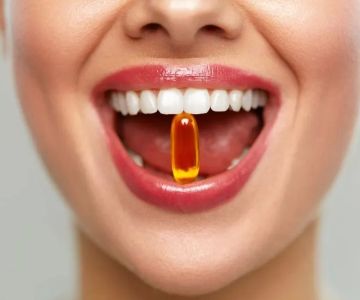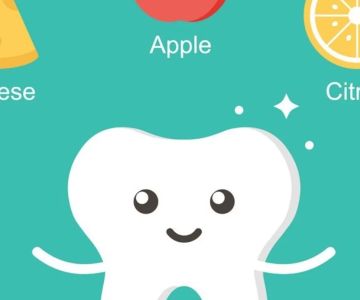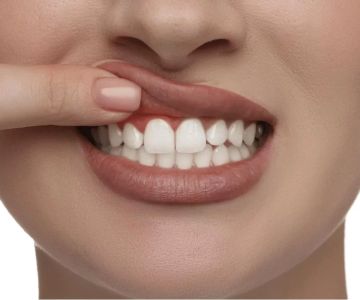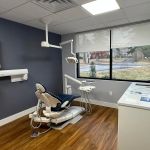Can You Give Oral Medications If on Clear Liquid Diet?
If you're on a clear liquid diet, one common question that arises is whether it's safe to take oral medications. Many individuals are prescribed clear liquid diets for various medical reasons, such as before or after surgery or certain diagnostic tests. A clear liquid diet typically consists of liquids that are transparent and free from any solid particles, such as broths, juices without pulp, and tea. But can you safely take oral medications on such a restrictive diet? Let's explore the subject further and address this important concern.
1. Understanding a Clear Liquid Diet
A clear liquid diet is often prescribed for a short period of time to help give your digestive system a break or prepare it for a medical procedure. It is low in calories, nutrients, and fiber, and includes liquids that are easy to digest and leave little residue in the intestines. Common examples include water, broth, tea, clear juices, and sports drinks.
While this diet can provide hydration, it doesn't offer sufficient nutrition, which is why it’s usually prescribed for short-term use only. It’s essential to follow the doctor's instructions carefully during this phase, as the diet limits a lot of food options and can impact your ability to take medications effectively.
2. The Challenge of Taking Oral Medications on a Clear Liquid Diet
Oral medications typically come in various forms, including tablets, capsules, and liquid forms. When you're on a clear liquid diet, one of the main concerns is whether the medication will be absorbed effectively, especially if it's in tablet or capsule form. Medications that need to be taken with food or a substantial amount of liquid may not work as well on a clear liquid diet.
In many cases, taking oral medications while on a liquid diet is perfectly safe, but there are a few considerations. For example, certain medications may require food to help with their absorption. In such cases, your healthcare provider may suggest an alternative form of medication, such as a liquid version of the medication, which can be more suitable for a liquid diet.
3. Consult Your Doctor or Pharmacist
Before taking any medication while on a clear liquid diet, it is crucial to consult with your doctor or pharmacist. They can provide personalized advice based on your medical condition and the type of medication you're taking. Some medications, like those for high blood pressure or diabetes, may have specific instructions about taking them on an empty stomach or with food. Your doctor can help determine the best way to take your medications safely while adhering to the clear liquid diet.
4. Liquid Medications as an Alternative
If you’re on a clear liquid diet, you may be prescribed liquid versions of medications. These are easier to consume and digest, which can be especially beneficial for those who are struggling to keep pills down. Liquid medications are designed to be absorbed quickly and can often be taken without the need for food or additional liquid, making them a good choice for individuals on restrictive diets.
If liquid medications are not available for your specific prescription, ask your doctor or pharmacist whether a pill or capsule can be crushed or dissolved in water. However, do not attempt this on your own, as some medications lose their effectiveness or cause irritation if altered in this way.
5. What to Do If You Can’t Take Pills
There are times when taking pills while on a clear liquid diet may not be possible. If you're unable to swallow pills or your medications need to be taken with food, consult with your healthcare provider. They may suggest alternatives, such as liquid medications, or offer guidance on how to safely take the pills with the clear liquids available to you.
For example, some people opt for pill crushers or splitters to make pills easier to swallow. While these tools can be effective, it’s essential to check with your healthcare provider first to ensure that crushing or splitting the medication won't affect its performance.
6. Key Medications and Their Impact on a Clear Liquid Diet
Certain medications are more sensitive to the digestive environment, and taking them on a clear liquid diet could affect their absorption or effectiveness. For example, some antibiotics require food to be taken with them for proper absorption, while others need to be taken on an empty stomach. Additionally, certain medications, like those for acid reflux or pain management, may interact with the limited intake of food or liquid that the clear liquid diet provides.
It is important to review the instructions that come with your medications, and work closely with your healthcare team to adjust your regimen if necessary to account for the dietary restrictions. A tailored approach will ensure that your treatments remain effective even during your liquid-only period.
7. Tips for Managing Medications on a Clear Liquid Diet
- Always consult your doctor or pharmacist for advice specific to your medications.
- Look for liquid versions of your medications if available, or ask your healthcare provider about alternatives.
- If necessary, use pill crushers or splitters only under professional guidance.
- Keep track of any changes in your health or how the medications are affecting you during this period.
- Ensure that you maintain proper hydration, even if it’s just with clear liquids.
8. Final Thoughts: Staying Safe While on a Clear Liquid Diet
While it can be challenging to manage medications while on a clear liquid diet, with the right precautions and professional guidance, you can ensure that your treatment continues without compromising your health. Always check with your doctor or pharmacist for the best strategies to follow during this period, and remember that alternatives like liquid medications may be available. Whether you're preparing for surgery, a medical test, or another procedure, maintaining your health and well-being while following a restricted diet is crucial for a successful recovery.
If you're unsure how to manage your medications during a clear liquid diet, don’t hesitate to consult with your healthcare provider. A proper understanding of your medication requirements will help ensure your safety and comfort throughout the process.







 Great Expressions Dental Centers - New City4.0 (362 review)
Great Expressions Dental Centers - New City4.0 (362 review) MapleTree Pediatric Dentistry4.0 (102 review)
MapleTree Pediatric Dentistry4.0 (102 review) Smile For All Family Dental0.0 (0 review)
Smile For All Family Dental0.0 (0 review) Tender Care Family Dentistry4.0 (61 review)
Tender Care Family Dentistry4.0 (61 review) Coventry Family Dental4.0 (247 review)
Coventry Family Dental4.0 (247 review) Rush Family Dental5.0 (161 review)
Rush Family Dental5.0 (161 review) The Importance of Oral Health Education During Pregnancy for a Healthy Pregnancy
The Importance of Oral Health Education During Pregnancy for a Healthy Pregnancy Best Tips for Brushing Your Teeth Properly for Healthy Gums: Essential Techniques for Oral Health
Best Tips for Brushing Your Teeth Properly for Healthy Gums: Essential Techniques for Oral Health Why Skipping Dental Checkups Can Lead to Bigger Oral Health Problems
Why Skipping Dental Checkups Can Lead to Bigger Oral Health Problems Advantages of Porcelain Dental Restorations
Advantages of Porcelain Dental Restorations How Can Diabetes Cause Tooth and Gum Problems? Preventing and Managing Oral Health Issues
How Can Diabetes Cause Tooth and Gum Problems? Preventing and Managing Oral Health Issues Healthy Habits for Promoting Good Oral Health and Hygiene: Tips for a Healthy Smile
Healthy Habits for Promoting Good Oral Health and Hygiene: Tips for a Healthy Smile